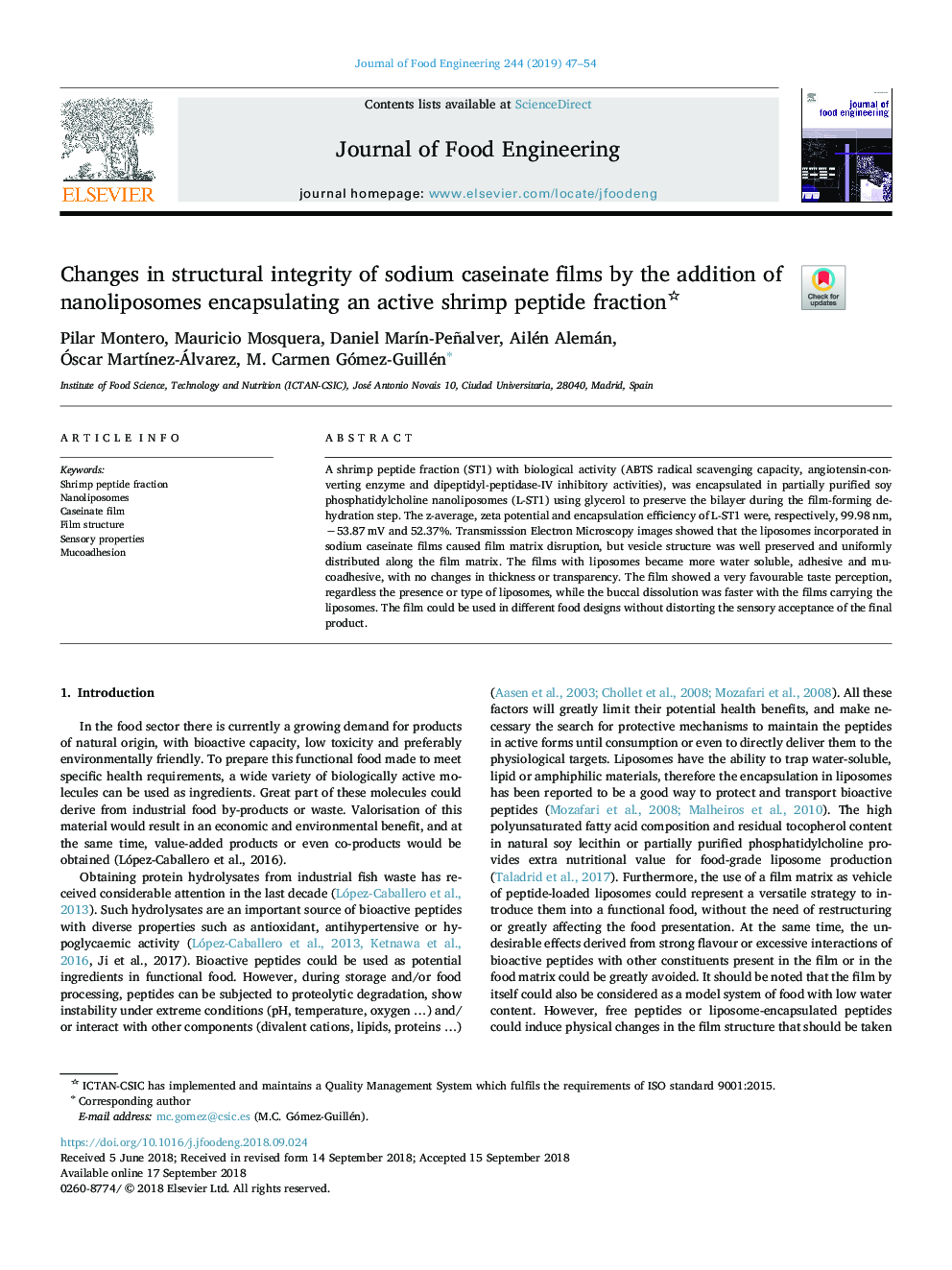| Article ID | Journal | Published Year | Pages | File Type |
|---|---|---|---|---|
| 10225205 | Journal of Food Engineering | 2019 | 8 Pages |
Abstract
A shrimp peptide fraction (ST1) with biological activity (ABTS radical scavenging capacity, angiotensin-converting enzyme and dipeptidyl-peptidase-IV inhibitory activities), was encapsulated in partially purified soy phosphatidylcholine nanoliposomes (L-ST1) using glycerol to preserve the bilayer during the film-forming dehydration step. The z-average, zeta potential and encapsulation efficiency of L-ST1 were, respectively, 99.98â¯nm, â53.87â¯mV and 52.37%. Transmisssion Electron Microscopy images showed that the liposomes incorporated in sodium caseinate films caused film matrix disruption, but vesicle structure was well preserved and uniformly distributed along the film matrix. The films with liposomes became more water soluble, adhesive and mucoadhesive, with no changes in thickness or transparency. The film showed a very favourable taste perception, regardless the presence or type of liposomes, while the buccal dissolution was faster with the films carrying the liposomes. The film could be used in different food designs without distorting the sensory acceptance of the final product.
Related Topics
Physical Sciences and Engineering
Chemical Engineering
Chemical Engineering (General)
Authors
Pilar Montero, Mauricio Mosquera, Daniel MarÃn-Peñalver, Ailén Alemán, Ãscar MartÃnez-Álvarez, M. Carmen Gómez-Guillén,
